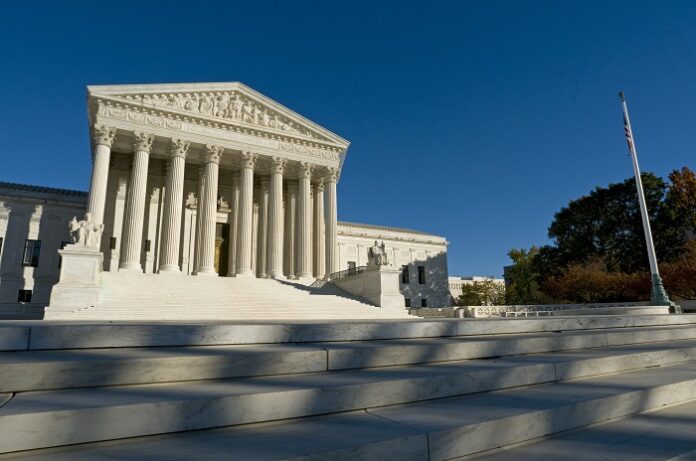Amid reports this week of a leaked draft Supreme Court ruling that could overturn Roe v. Wade, a number of big firms are saying they will help employees access abortions and cover travel and other expenses to states where they can legally receive such services.
Twenty-six states are “certain or likely” to ban abortion if the high court strikes down Roe v. Wade, meaning many would have to travel to get the procedure, according to the Guttmacher Institute, a think tank that studies sexual and reproductive health and rights.
Ahead of a final ruling, which is expected by early July, several employers including Amazon, Levi Strauss & Co. and Yelp this week said that they will expand their benefits programs to reimburse employees for travel costs related to seeking medical care that is not available near the employee’s home.
The latest: The Supreme Court overturned Roe v. Wade. What employers should do now
“As the pandemic has shown so clearly, public health issues are workplace issues. Business leaders are responsible for protecting the health and wellbeing of our employees, and that includes protecting reproductive rights and abortion access,” Levi Strauss said in a statement this week, adding that women make up 58% of the company’s global workforce of about 15,000 and that a number of those employees “expressed to leadership their growing alarm over the rollback of all forms of reproductive care” in recent years.
 The clothing company said under its current benefits plan, Levi Strauss employees are eligible for reimbursement of healthcare-related travel expenses for services not available in their home state, including those related to reproductive healthcare and abortion. There also is a “process in place through which employees who are not in our benefits plan, including part-time hourly workers, can seek reimbursement for travel costs incurred under the same circumstances,” Levi’s said.
The clothing company said under its current benefits plan, Levi Strauss employees are eligible for reimbursement of healthcare-related travel expenses for services not available in their home state, including those related to reproductive healthcare and abortion. There also is a “process in place through which employees who are not in our benefits plan, including part-time hourly workers, can seek reimbursement for travel costs incurred under the same circumstances,” Levi’s said.
Retail giant Amazon announced this week that it would cover up to $4,000 in travel expenses each year for non-life-threatening medical treatments, including abortions, according to Reuters. That benefit would begin in January.
Moves from employers on abortion services were occurring prior to the Supreme Court leak. A handful of states, including Texas and Mississippi, enacted restrictive reproductive healthcare laws, spurring a number of employers to add benefits. Citigroup, for instance, added a benefit to cover employee travel to access “adequate resources,” which it announced in March.
In January, Alloy, a software platform provider, added new benefits for its employees including $1,500 toward travel expenses to travel out of state for an abortion, $1,500 to cover out-of-pocket medical costs, and the ability to have legal expenses related to anti-abortion laws covered up to 50%.
Though abortion rights is a hot-button issue, many organizations are deciding to take a stance at a time when healthcare and women’s rights are in the spotlight, and when employees are prioritizing purpose and action from their employers. “As the workforce becomes more employee-focused, the new trend will continue to challenge more companies as they need talent as well as retention. Workers are no longer being quiet on these issues,” says Stacie Haller, career expert at ResumeBuilder.com.
And experts think other employers may follow, especially as the Roe v. Wade situation unfolds.
“My guess is if Roe v. Wade is overturned, more employers will offer this,” says Carolyn Kleiman, career expert at ResumeBuilder.com.



